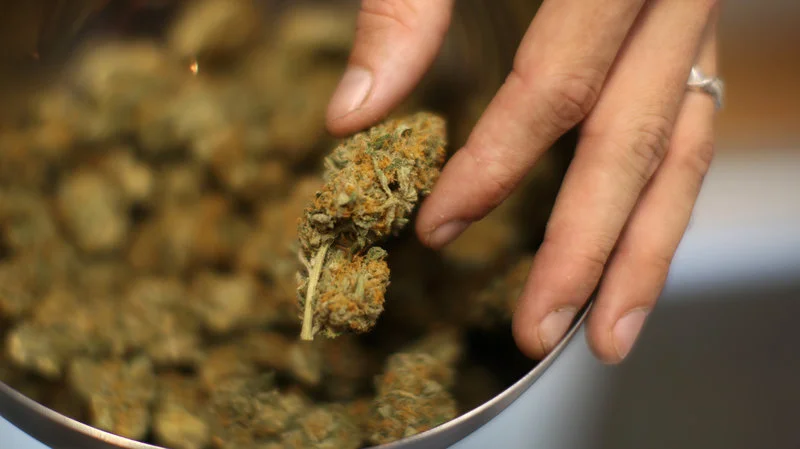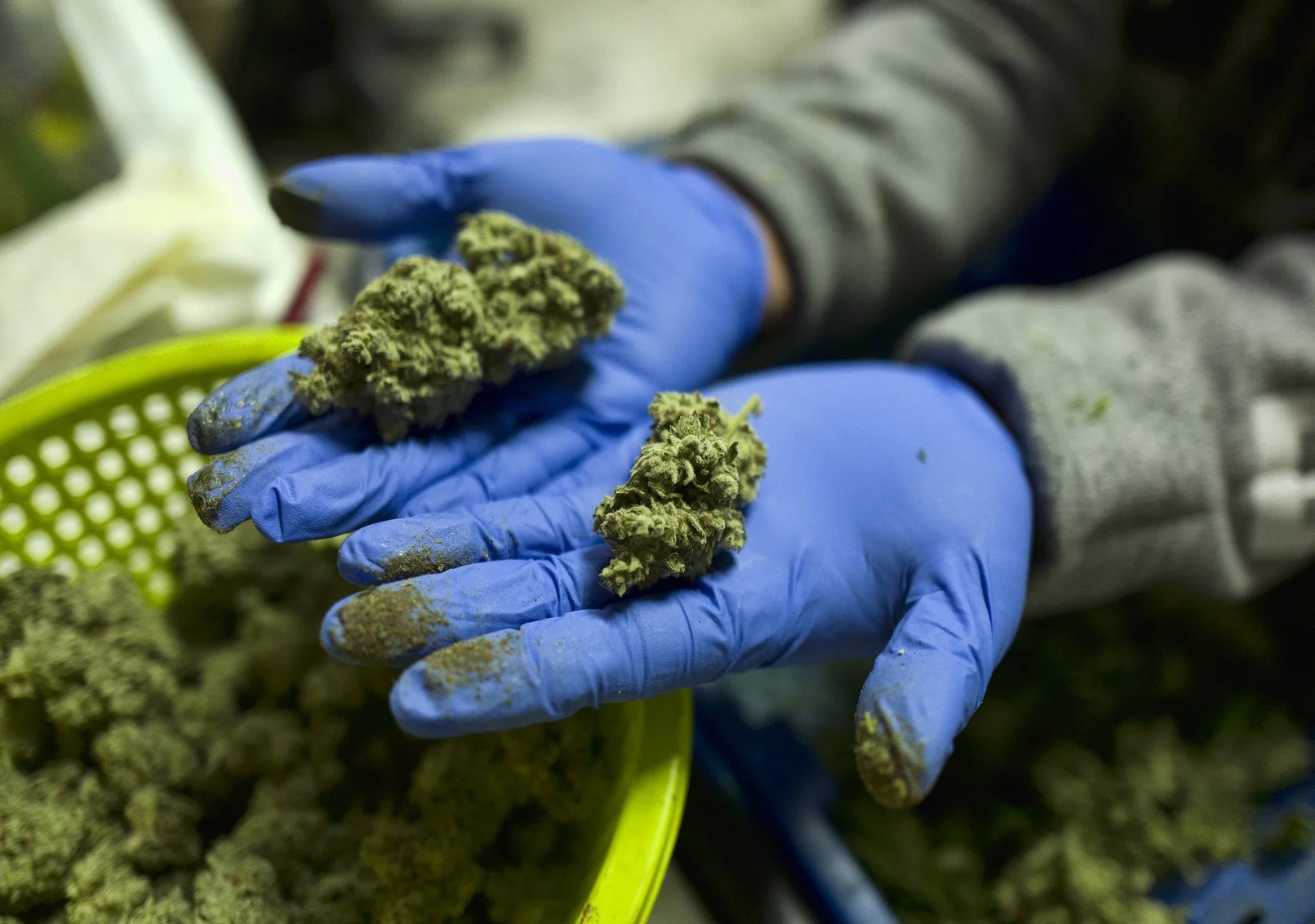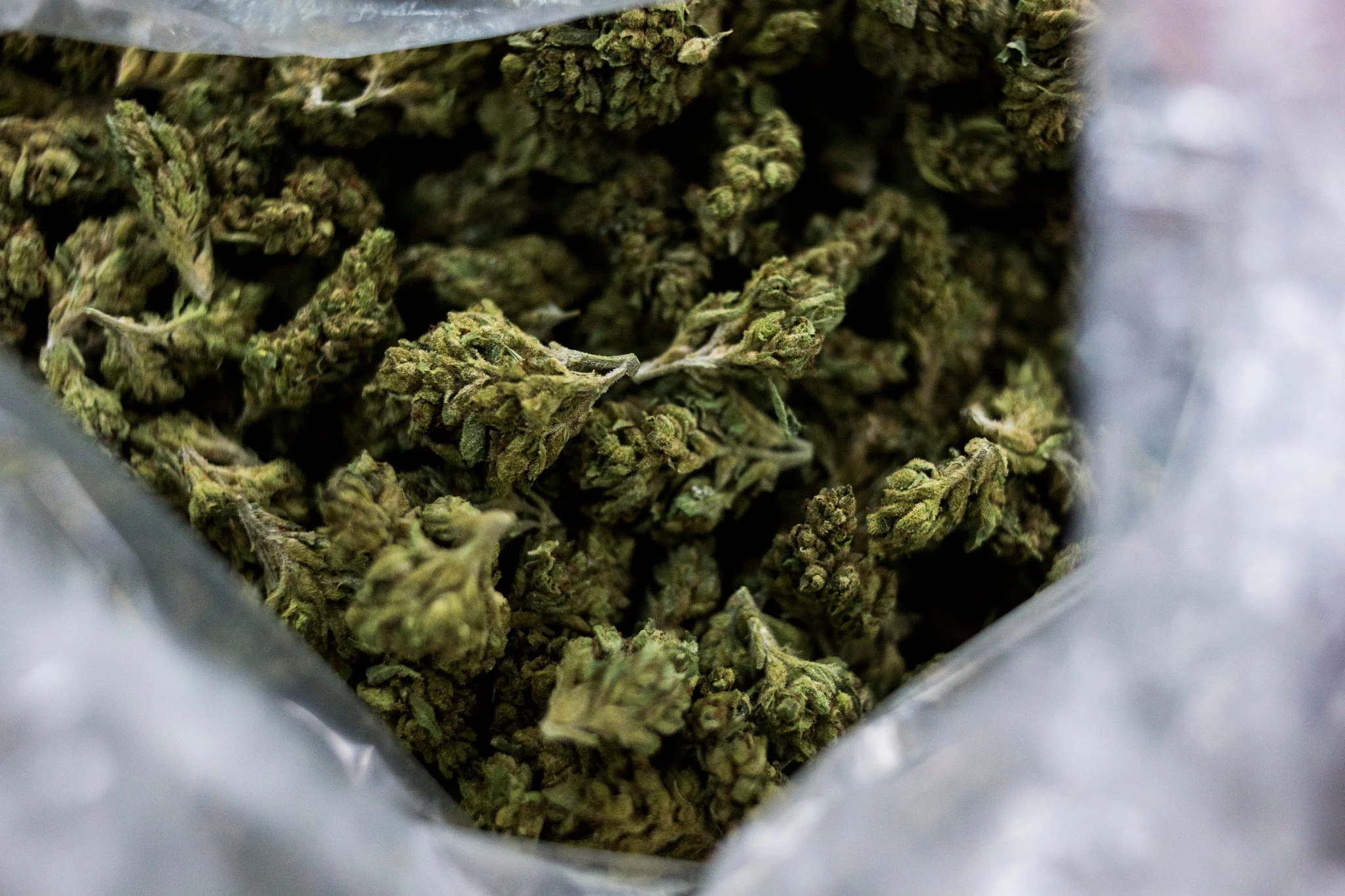No, prisons aren’t full of nonviolent drug offenders.
Read MoreStay in the know with the latest on our fight against the legalization of marijuana
Have an article that you would like us to post? Share it on our Facebook page!
Forcing California cities to allow marijuana sales is ignoring the will of voters→
/California’s budding cannabis industry isn’t exactly blossoming. It’s having trouble sprouting. So a San Francisco legislator has some unique ideas.
Democratic Assemblyman Phil Ting, influential chairman of the budget committee, wants the state to break a promise made to voters in 2016 when they approved Proposition 64 to legalize non-medical use of marijuana.
Read MoreHighly Potent Weed Has Swept The Market, Raising Concerns About Health Risks→
/As more states legalize marijuana, more people in the U.S. are buying and using weed — and the kind of weed they can buy has become much stronger.
Read MoreWhere's the pot? California tracking system unlikely to know→
/When California voters broadly legalized marijuana, they were promised that a vast computer platform would closely monitor products moving through the new market. But 16 months after sales kicked in, the system known as track-and-trace isn’t doing much of either. As of last month, just nine retail outlets were entering data into the network established under an estimated $60 million state contract, even though 627 shops are licensed to sell pot in California. The rate of participation is similarly slim for other sectors in the emerging industry.
Read MoreWeeding Out Dubious Marijuana Science→
/Researchers find ways to minimize increases in crime and traffic deaths that followed legalization.
Read MoreAlabama’s dangerously flawed medical marijuana proposal→
/Marijuana’s ability to cause psychosis is one of its longest-known and best-documented side effects.
Read MoreFor sale in the pot industry: political influence→
/This should be no surprise; it would be a surprise, in fact, if the influence business had taken a pass on the lucrative potential of pot. But the flood of former government officials coming into the pot business — including former governor and current presidential candidate William F. Weld, former state House speaker Thomas M. Finneran, former state senator Andrea F. Nuciforo Jr., former Boston city councilor Michael P. Ross and even former Boston police superintendent-in-chief Daniel Linskey — is striking.
Read MoreMarijuana legalization can’t fix mass incarceration→
/A Republican and Democrat pointed to marijuana prohibition to explain mass incarceration. They’re both wrong.
Read MoreMental illness implications of cannabis use must not be ignored→
/For California voters, recreational marijuana legalization was sold as a win-win-win: billions of dollars in new tax revenues, a chance for law enforcement to focus on more serious crimes, and the societal acceptance of a relatively low-risk alternative to alcohol.
But as the state stumbles through its second year of fully legalized cannabis, the reality appears to be more lose-lose-lose.
Read MoreCraving cannabis: is marijuana addictive?→
/To Weiner the villain is the for-profit marijuana industry. Legalization has gained widespread support in the US thanks to a two-pronged PR strategy of promoting cannabis as a “medicine” and wellness product, even when the evidence of its benefits is anecdotal or non-existent, and trying to demolish the stigma of cannabis as a drug for losers. “Their goal is not public health, their goal is addiction,” Weiner says. “When I speak out against this topic it’s against my financial interest – which I can’t say for the people on the other side.”
Read More‘Getting Worse, Not Better’: Illegal Pot Market Booming in California Despite Legalization→
/It’s been a little more than a year since California legalized marijuana — the largest such experiment in the United States — but law enforcement officials say the unlicensed, illegal market is still thriving and in some areas has even expanded.
Read MoreMany drivers who test positive for marijuana have a child in the car, survey finds→
/Data from thousands of Washington state drivers shows many don’t realize cannabis can impair driving, experts say.
Read MoreHalf Of Marijuana Users In The US Think They’re Fine To Drive Stoned
/In a major national survey, most users added that they’d be comfortable in a car driven by someone high on cannabis.
Read MoreHalf Of Americans Think The Smell Of Weed In Public Is A Real Problem→
/Canadians hate it even more, according to a new major survey on cannabis.
Read MoreHow state officials snuck themselves into Georgia’s Hope Act, sticking taxpayers with the cost of regulating medical marijuana so officials can profit from its production
/Because no tax was levied to pay for the costs of regulating a medical marijuana industry in Georgia, taxpayers will bear that burden so that state-wide public officials and legislators – maybe even some who were actually all in that same room – can make money growing and processing medical pot.
Read MoreStop ignoring the brutal downside of legal pot→
/Politicians are pushing to legalize recreational marijuana in New York, New Jersey and Pennsylvania, following 10 other states. But the Parent Teacher Association, local health officials and pediatricians are pushing back, warning about the permanent damage to youngsters’ brains caused by weed. If you have children, trust the PTA, not the pols.
Read MoreThe Marijuana Delusion→
/States rush to legalize recreational pot, even as evidence of its harms grows.
Read MoreCalifornia is awash in cannabis cash. Some is being used to bribe public officials→
/In the more than two years since California voters approved the licensed growing and sale of recreational marijuana, the state has seen a half-dozen government corruption cases as black-market operators try to game the system, through bribery and other means. The cases are tarnishing an already troubled roll-out of the state permitting of pot businesses as provided for when voters approved Proposition 64 in November 2016.
Read MoreLegal? Illegal? Some players still work both sides of state marijuana industry→
/During the 21 years that California’s multibillion-dollar unregulated medical marijuana market thrived, cannabis operators learned to create elaborate schemes to disguise their connections to unlicensed shops. And now that some operators are also tied to valuable licensed businesses, Montes said, double dippers have become even more careful about burying their identities.
Read MoreDon't be fooled - Marijuana legalization is not about advancing social justice
/Advocates frequently argue that marijuana should be legalized as a source of new tax revenue. But considering that most marijuana is smoked by low-income individuals, such a tax would be regressive in nature. Increasing harmful consumption taxes on poor communities does little to advance social equity.
Read More




















